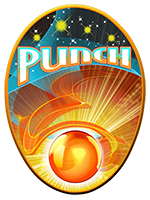The Teams
PUNCH Associate Investigator (AI) Team
PUNCH has instituted a program to recognize and encourage early-career scientists working with the Science Team on problems that support and enhance PUNCH mission science. PUNCH Associate Investigators (AIs) pursue science projects with collaboration and mentorship from PUNCH Co-I(s), attend team meetings, participate in PUNCH working group activities, and present at PUNCH science meetings. They act as liaisons, communicating PUNCH science to the broader community and community needs back to the project. In this way, they help grow the PUNCH user base, and also benefit from the career-enriching experience of being embedded in a NASA mission at an early stage of their careers.
Click on 'more' under team members to open their CV, or | .

Robert Jarolim
NCAR/High Altitude Observatory
PUNCH Associate Investigator: WG 2A
Education
Ph.D. in Physics, University of Graz, 2023
M.S. in Physics, University of Graz / Graz University of Technology, 2020
B.S. in Physics, University of Graz / Graz University of Technology, 2018
Professional Background
NASA Jack Eddy Postdoctoral Fellow, High Altitude Observatory / NCAR, Boulder, USA, 2023 - present
Junior Researcher/PhD candidate - SOLARNET (international EU H2020 project), University of Graz, Graz, Austria, 2019-2023
Science CO-I - Instrument-To-Instrument tool (NASA MDRAIT pro-ject), Trillium Technologies Inc., USA, 2023
PUNCH Role
Development and application of AI methods for 3D reconstructions of the solar corona and heliosphere. Focus on tracing the propagation and interaction of coronal mass ejections through the heliosphere.
Experience Relevant to PUNCH
Dr. Jarolim is a leading expert in physics-informed machine learning for solar and heliospheric observations. He has pioneered frameworks for 3D reconstructions (SuNeRF) and coronal magnetic field modeling with PINNs. His work directly supports PUNCH objectives by enabling physically consistent integration of multi-instrument data for mapping solar wind structures and coronal mass ejections.
Supporting Experience
Dr. Jarolim has broad experience leading international collaborations (NASA Frontier Development Lab, NASA funded projects) and supervising early-career researchers. His background as a software engineer complements his research expertise, with extensive coding experience in Python and AI/ML frameworks. He was awarded the NASA Jack Eddy Postdoctoral Fellowship to pursue advanced research on AI-based solar magnetic field modeling. His PhD thesis was recognized with multiple international prizes, including the IAU PhD Prize and the ESPD Patricia Edwin Thesis Prize.
Selected Publications
Jarolim, R., Tremblay, B., Muñoz-Jaramillo, A., Bintsi, K.M., Jungbluth, A., Santos, M., Vourlidas, A., Mason, J., Sundaresan, S., Downs, C., Caplan, R. (2024). SuNeRF: AI enables 3D reconstruction of the solar EUV corona. The Astrophysical Journal Letters, 961 L31.
Jarolim, R., Thalmann, J.K., Veronig, A.M., Podlachikova, T. (2023). Probing the solar coronal magnetic field with physics-informed neural networks. Nature Astronomy, 7, 1171–1179.
Jarolim, R., Tremblay, B., Rempel, M., Molnar, M., Veronig, A.M., Thalmann, J.K., Podlachikova, T. (2024). Advancing non-linear force-free magnetic field extrapolations through multi-height magnetic field observations. The Astrophysical Journal Letters, 963 L21.
Jarolim, R., Veronig, A., Pötzi, W., Podladchikova, T. (2025). A deep learning framework for instrument-to-instrument translation of solar observation data. Nature Communications, 16, 3157.



